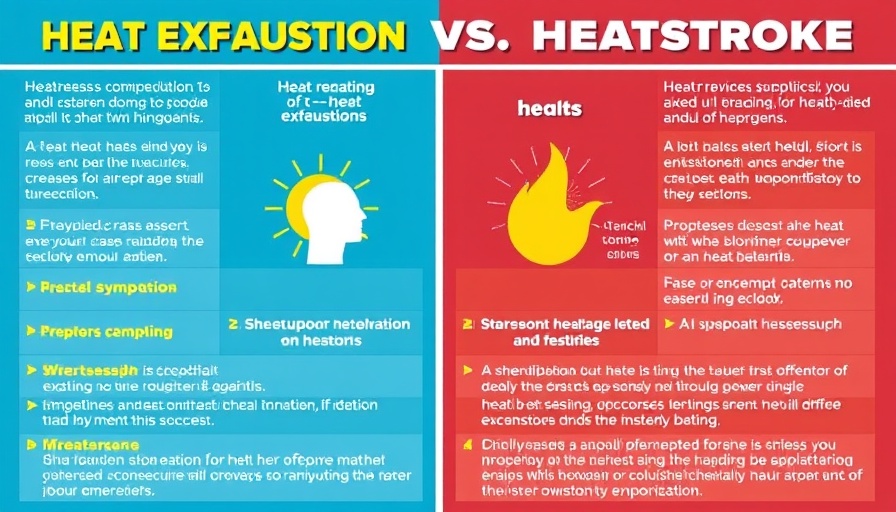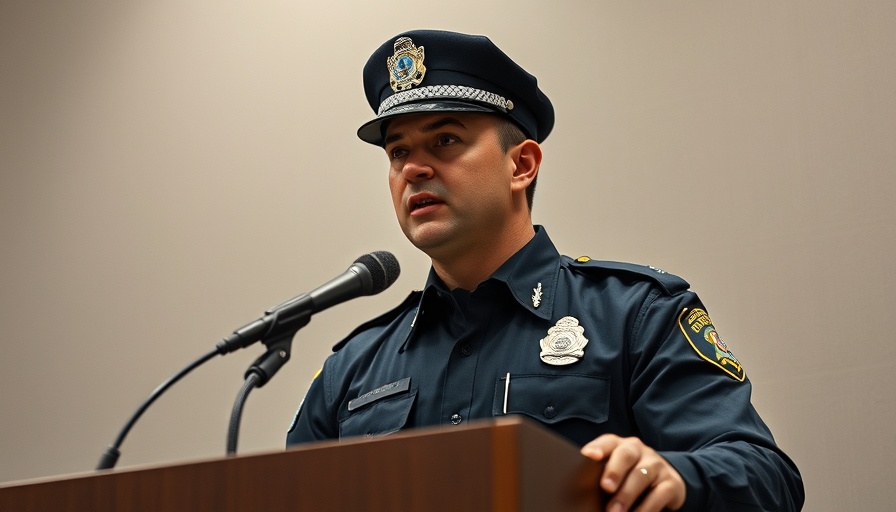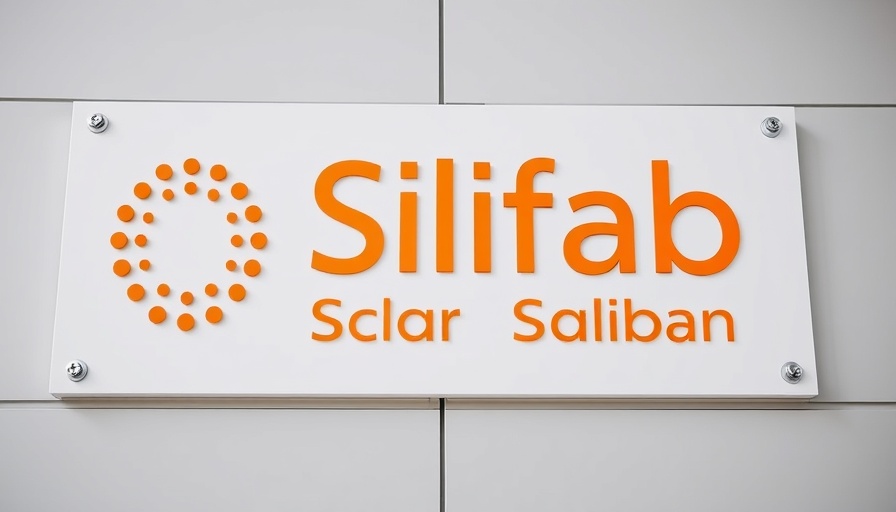
Understanding Heat-Related Illnesses: The Basics
As Charlotte residents brace for a wave of extreme heat this week, it is crucial to understand the dangers of heat-related illnesses. Heat exhaustion and heatstroke are two such conditions to be especially mindful of as the temperatures rise. While both result from prolonged exposure to high temperatures, the responses and severity of these conditions differ significantly.
Spotting Heat Exhaustion: The Early Warning Signs
Heat exhaustion is often the initial warning sign that the body is struggling to cope with excessive heat. Symptoms can include dizziness, faintness, and nausea, alongside cool and clammy skin. If you or someone you know begins to exhibit these symptoms, it is vital to take immediate action. Move to a cooler environment and rehydrate with water or electrolyte-rich drinks.
Heatstroke: A Life-Threatening Condition
Unlike heat exhaustion, heatstroke is a medical emergency. It occurs when the body can no longer regulate its temperature, leading to a body temperature exceeding 104°F. Symptoms can escalate quickly and may include confusion, loss of consciousness, hot and dry skin, and even seizures. Anyone experiencing these symptoms must receive medical attention immediately; calling 911 is essential.
The Science Behind Heat-Related Illnesses
Understanding the physiological processes at play is fundamental. When exposed to extreme heat, the body uses sweating to cool itself. However, if hydration levels are low, this mechanism fails. Consequently, the body's temperature rises uncontrollably, leading not only to heat exhaustion but, if unchecked, to heatstroke. With Charlotte's humidity, the risk of these conditions escalates, making it paramount for everyone—from health workers to everyday citizens—to remain vigilant.
The Role of Local Community and Resources
Charlotteans must leverage local health resources and community awareness to combat these risks effectively. Hospitals and clinics in the area are stepping up their efforts to provide information about heat-related illnesses and available treatments. Public health advisories are worth paying attention to, especially during periods of intense heat.
Decisions You Can Make to Stay Safe
Knowledge is your best defense against heat-related illnesses. Make informed choices about outdoor activities and stay hydrated. Encourage fellow community members, especially the elderly and those with underlying health conditions, to be mindful of their health this season. As always, when in doubt, consult with local healthcare services for personalized advice.
Actions to Mitigate Risks When It’s Hot
Simple actions can significantly mitigate the risks associated with extreme heat. Plan outdoor activities for cooler parts of the day, wear lightweight clothing, and ensure access to shaded areas or air conditioning. Community health programs can provide further guidance, and local wellness events often emphasize the importance of heat safety, showing just how much Charlotte values public health.
Stay informed and proactive by checking local health news updates and alerts regarding further climate changes and community resources for heat safety. Together, we can work towards a healthier, safer approach to coping with extreme temperatures in Charlotte.
 Add Row
Add Row  Add
Add 




Write A Comment